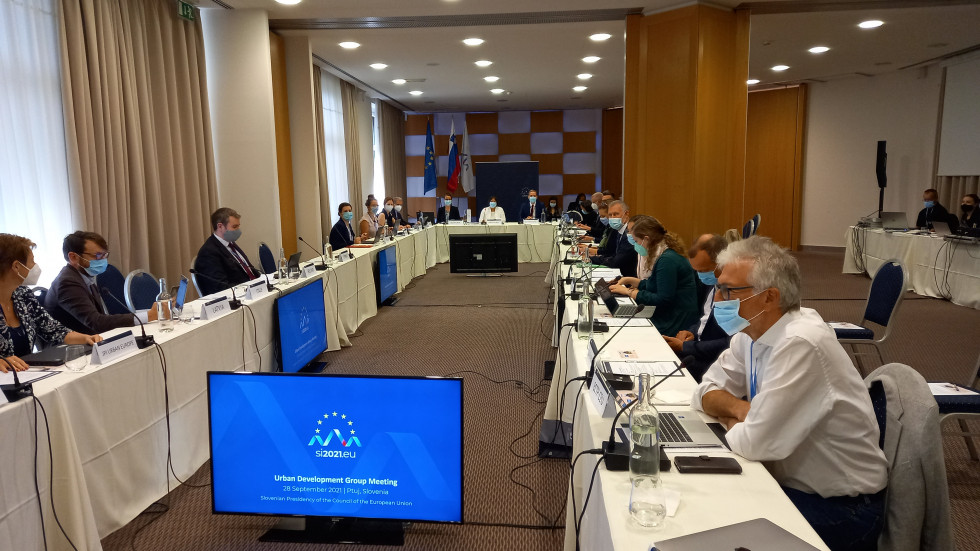Meeting of the Working Group for Urban Development on the future of the Urban Agenda for the EU
- Ministry of the Environment and Spatial Planning
The main focus of the meeting was the discussion and agreement on the future of the Urban Agenda for the EU. The discussion concentrated on the issues that are important for towns and cities and that could be addressed in the future in terms of better legislation, funding and knowledge. The members of the working group discussed the content, processes and support for cooperation between cities, states, the European Commission and other stakeholders involved with the Urban Agenda for the EU. They drafted proposals for discussion and decision-making at the meeting of directors-general responsible for urban development at the end of October. The main goal is to draft an agreement on the future development of the Urban Agenda for the EU in line with the principles of the New Leipzig Charter (2020). The so-called "Ljubljana Agreement" and the Work Programme for the Urban Agenda for the EU will be adopted during the Slovenian Presidency at the informal meeting of the ministers responsible for urban development, which will take place on 26 November in Brdo pri Kranju.
At the meeting, Portugal and Poland presented their national urban development policies and their practices regarding networking between countries and cooperation with their cities. This was followed by a discussion about green cities and the presentation of the Report on the Implementation of Nature-Based Solutions in Urban Development, commissioned by the Ministry of the Environment and Spatial Planning and prepared by the Urban Planning Institute of the Republic of Slovenia.
The meeting was attended by representatives of EU member states, the European Commission, European associations of cities and local authorities, partner states and other European urban development institutions.


